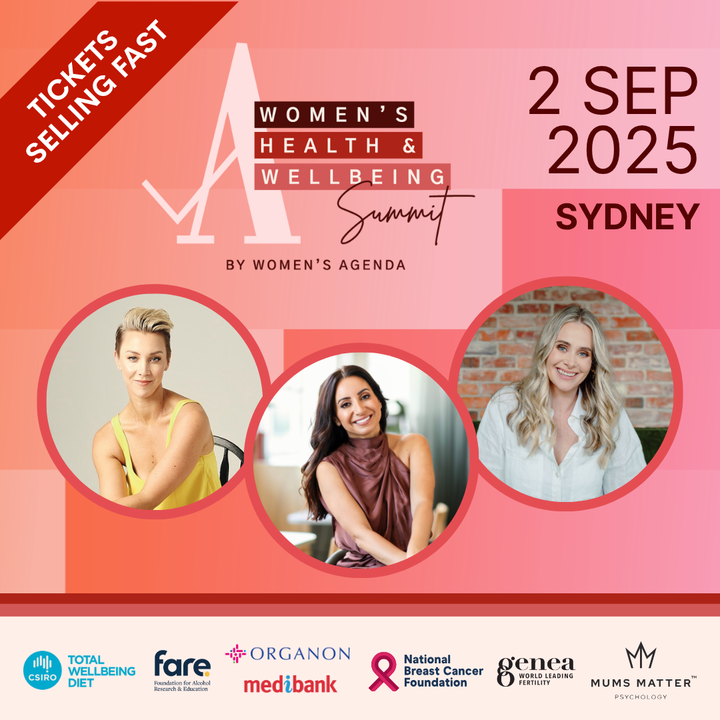Ask any parent if they think it’s safe to serve their young children alcohol while they’re playing in the back yard and the answer would be an emphatic no.
Yet, every day, our kids are served up adverts for beer, wine and spirits when they’re watching televised sport, and when they’re online.
This deluge of TV and digital advertising has been a long-standing tactic by an unscrupulous industry to shape young minds and attract new customers from an early age.
It’s why we’ve campaigned alongside the community for many years to put an end to unfettered alcohol marketing, particularly when our children’s love of sport is exploited as a gateway to drinking.
The Australian Communications and Media Authority (ACMA) recently rejected an industry code of practice that would have opened the floodgates to even more alcohol advertising to kids. This decision offered some hope the tide could turn and that the wellbeing of our youngest Australians might finally be prioritised over corporate profits.
But it also highlighted the limitations of the existing system, the flaws in the way these rules are developed, and the critical need for Government intervention.
The regulator’s decision denied – on “community safety” grounds – Free TV’s proposal to extend alcohol advertising on commercial free-to-air TV on weekends, school and public holidays. The proposal would have unlocked up to an additional 800 hours a year available for alcohol ads during peak children’s viewing times.
It was heartening to see that not only did the regulator reject the proposal, it also signalled it will investigate the adequacy of the existing industry-developed code, including potentially closing a loophole exempting live televised sport from a ban on alcohol advertising when children are watching.
The regulator also flagged a potential crackdown on TV gambling advertising, citing “significant community concern”.
This is a huge win for the hundreds of parents and community campaigners who raised their voices, wrote to ACMA with their concerns, and fought tirelessly in a campaign to keep children safe from harm.
But, while we welcome ACMA’s recent positive decision, there is much more to improve. Why is it the case that the community must engage in a David and Goliath-style battle every time changes are proposed that put young people at risk? The system should, by design, have basic safety protections as it guiding set of principles – but this isn’t the case.
This is a system that allows industry lobby groups to write their own rules, to largely police themselves, and it leaves the media regulator playing catch-up to try to mitigate some of the more egregious harms. It’s a system that, in practice, favours the profit-motivated, boundary-pushing, and deep-pocketed industry, who fiercely resist measures offering even modest protections.
When governments allow industry to set their own rules, it will always prioritise its profits ahead of the health, safety and wellbeing of our families and communities.
Evidence shows that children’s exposure to alcohol marketing is linked to an increased risk of drinking at earlier ages and at high risk levels later in life. Women and children are also at higher risk of violence during sports broadcasts, with the Australian Government’s Rapid Review on prevention of family and domestic violence recommending alcohol advertising be restricted during sporting events.
The need to act is clear. The Federal Government can demonstrate leadership by tapping into the groundswell of concern about these harmful products and decisively regulating this space to the standard the community expects. In the meantime, the existing media regulator needs a stronger mandate within an overhauled system that makes community health and wellbeing the primary consideration when drafting industry codes.
The vast majority of Australians are worried about the insidious creep of alcohol marketing – as well as other products like gambling – into every aspect of their children’s lives. Recent polling conducted for FARE showed 90 per cent of those surveyed were concerned about the proposed changes to the Commercial TV Industry Code of Practice, and 82 per cent were concerned with alcohol being advertised during televised sports.
Australia already lags many other countries when it comes to protecting our children from harmful product industries. Recognising the need to protect the health and wellbeing of children, several countries have banned any advertising that targets children; others have banned the targeted advertising of certain products – like alcohol and gambling – and many have placed significant restrictions on this advertising.
Just over three decades ago, Australia led the world by creating the Tobacco Advertising Prohibition Act, which banned all forms of advertising for tobacco products. Since then, tobacco use has plummeted in Australia – saving and improving countless lives. We can lead the world once again by introducing common sense measures that will protect our children from harmful advertising. It would be a bold step towards improving our community’s health and wellbeing in the decades ahead.
Become a Women’s Agenda Foundation member and support our work! We are 100% independent and women-owned. Every day, we cover the news from a women’s perspective, advocating for women’s safety, economic security, health and opportunities. Foundation memberships are currently just $5 a month.
Bonus: you’ll receive our weekly editor’s wrap of the key stories to know every Saturday.


